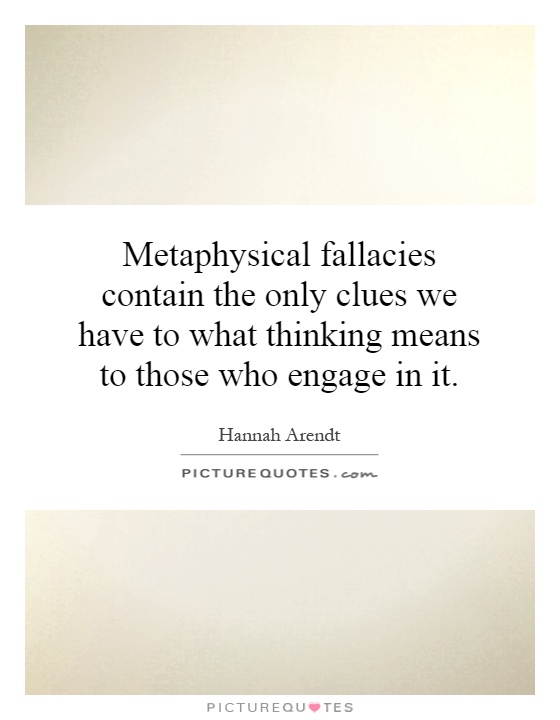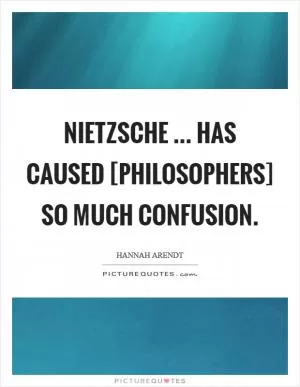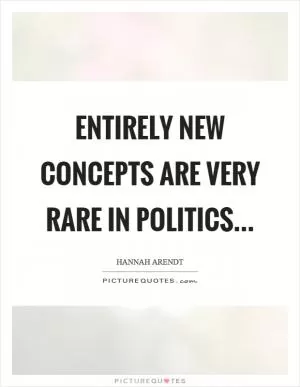Metaphysical fallacies contain the only clues we have to what thinking means to those who engage in it

Metaphysical fallacies contain the only clues we have to what thinking means to those who engage in it
Hannah Arendt, a prominent political theorist and philosopher, delved deeply into the nature of thinking and the fallacies that can arise from metaphysical thought. In her work, she explored the idea that metaphysical fallacies contain valuable clues to understanding the essence of thinking for those who actively engage in it.Arendt believed that thinking was a fundamental aspect of human existence, essential for understanding the world and our place within it. She argued that thinking was not simply a cognitive process, but a way of engaging with the world and making sense of our experiences. For Arendt, thinking was a form of active engagement with the world, a process of questioning, reflecting, and seeking to understand the complexities of human existence.
Metaphysical fallacies, according to Arendt, are errors in thinking that arise from attempting to impose fixed, abstract concepts onto the fluid and dynamic nature of reality. These fallacies can lead to misunderstandings, distortions, and misinterpretations of the world around us. However, Arendt believed that these fallacies also contain important clues to the nature of thinking itself.
By examining the ways in which metaphysical fallacies arise and the impact they have on our understanding of the world, Arendt argued that we can gain insight into the nature of thinking and the challenges it presents. She believed that by confronting these fallacies and questioning our assumptions, we can deepen our understanding of the world and our place within it.
Arendt's exploration of metaphysical fallacies and their relationship to thinking offers a valuable perspective on the complexities of human thought. By recognizing the limitations of metaphysical thinking and embracing the uncertainties and ambiguities of the world, we can engage in a more authentic and meaningful form of thinking. Arendt's work reminds us that thinking is not simply a passive process of acquiring knowledge, but an active and dynamic engagement with the world that requires constant questioning, reflection, and openness to new possibilities.












 Friendship Quotes
Friendship Quotes Love Quotes
Love Quotes Life Quotes
Life Quotes Funny Quotes
Funny Quotes Motivational Quotes
Motivational Quotes Inspirational Quotes
Inspirational Quotes